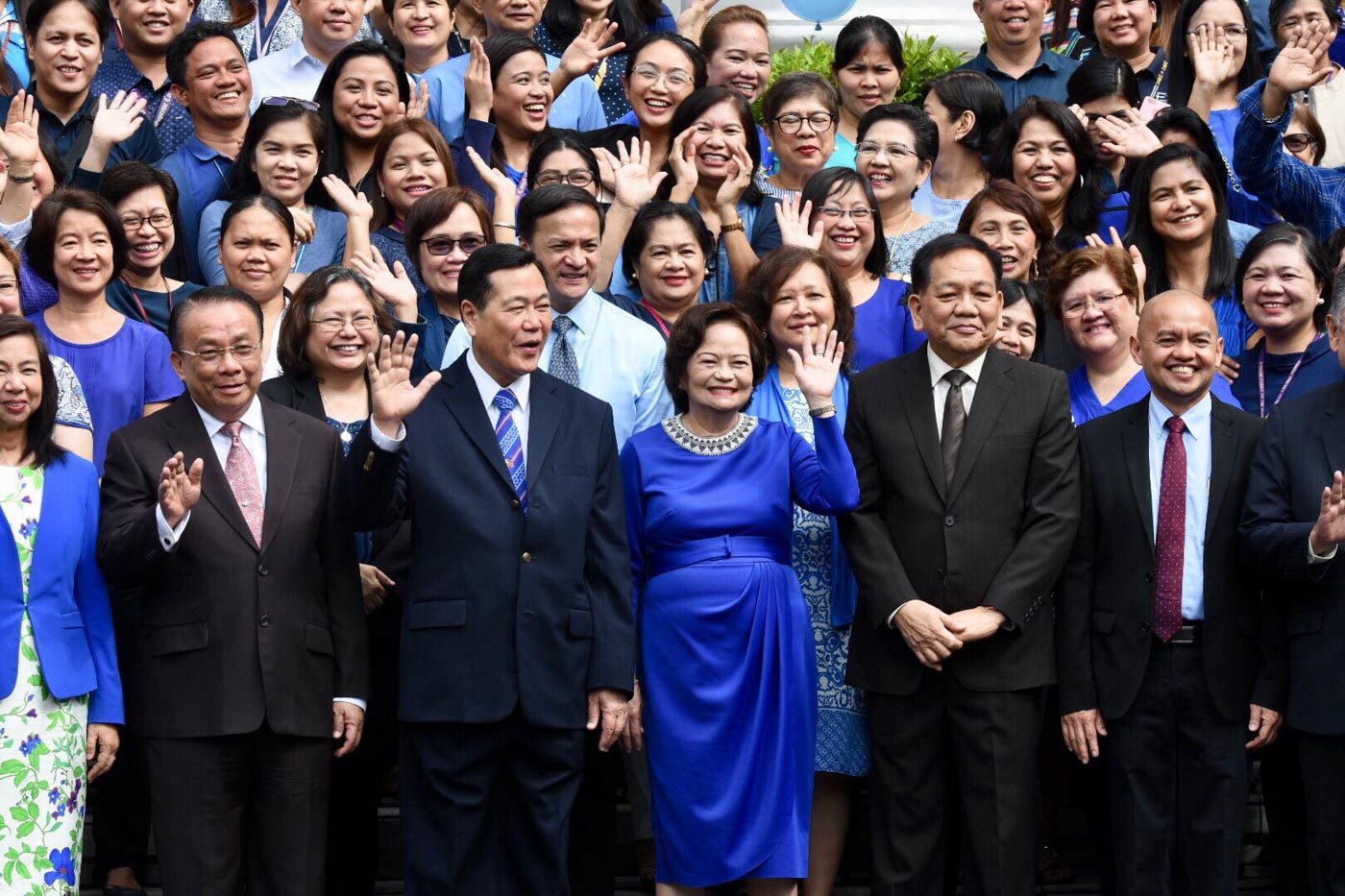SUMMARY
This is AI generated summarization, which may have errors. For context, always refer to the full article.

MANILA, Philippines – In a rare interview that gave a glimpse into the inner workings of the Supreme Court, Associate Justice Marvic Leonen said that former chief justice Teresita de Castro was able to restore respect for the highest office of the High Court.
“Even though it’s short, [the De Castro term] was instrumental in normalizing the relations within the Court, and I would say that apart from restoring collegiality among the justices of the Court…the Office of the Chief Justice has regained the respect,” Leonen said in a Rappler Talk interview on October 25.
Leonen added: “A lot of the staff inside the Court, a lot of the policies have been restored, including appointment of chiefs of offices, including certain benefits for the staff, and the efficiency of decision-making of the 3 top senior justices.”
De Castro, in her farewell message, was also visibly satisfied with the work she did as the shortest-serving chief justice, even though it mainly involved internal matters, and not jurisprudence. For restoring stability to the Court, De Castro was given the North Star Award.
Leonen and Sereno
Leonen and ousted chief justice Maria Lourdes Sereno were colleagues at the University of the Philippines College of Law for a long time (Sereno was professor, as Leonen became dean), before they were appointed to the Court by the same president, Benigno Aquino III.
In the Court, they voted together on major political cases, and up until the quo warranto ouster, Leonen dissented and called the kicking out of Sereno a “legal abomination.”
Leonen was criticized by Sereno supporters in February, when insider reports revealed that justices pressured the former chief justice to take an indefinite leave while the en banc discussed the quo warranto petition.
Supporters, of course, expected Leonen to come to the defense of his longtime colleague. The Court would later come out with an unprecedented unified stance, stating that asking Sereno to take a leave was the consensus of the en banc.
“Well, I haven’t seen him (Leonen) for a long time. I’m not thinking much about that,” was Sereno’s very brief answer in her June interview shortly after the Court finalized her ouster.
Next chief justice
The Judicial and Bar Council (JBC) is now vetting the 5 incumbent justices vying for the chief justice post, but Leonen said that more than the person, what is more important is what that position means now.
“I think what has been restored is that the chief justice is one vote in terms of the items on the agenda,” Leonen said, referring to the principle primus inter pares or first among equals, something that Sereno was hit for.
This, of course, refers also to collegiality, a valued virtue on the Bench of 15 intellectuals. De Castro prided herself with bringing back collegiality to the Court. This simply means that no matter how tense the debates would get, relations on the Bench will continue to be harmonious, and ears will remain open even to dissent.
“There have been unanimous decisions, there have been decisions with dissents, there was in fact a rule that was just promulgated, on the precautionary hold departure order (PHDO), although there was a dissent, the Court worked collegially,” Leonen said. He was, in fact, the lone dissenter in the PHDO case.
This is a continuing conflict in perception, because the Court continues to bear the negative effects of unpopular decisions, the peak of which was the Sereno ouster slammed even by Leonen and fellow dissenters as unconstitutional.
But it seems good things have happened since.
“The Court has moved on and it has adapted,” said Leonen.
Will that help its credibility?
“The Court in the past few years has undergone a lot of major decisions, and I think many of them have been historical, in the sense of their impact [on] contemporary politics, but I would say that the Court is resilient,” said Leonen. – Rappler.com
Add a comment
How does this make you feel?
There are no comments yet. Add your comment to start the conversation.